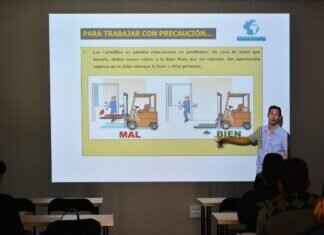Navigating Retirement Planning in Volatile Markets
Amidst the chaos of volatile markets and economic uncertainty, many individuals find themselves grappling with the daunting task of navigating their retirement planning. With retirement accounts and stock portfolios experiencing significant declines, the question of what to do next looms large for many.
Before diving into the specifics of investment strategies and financial decisions, it is crucial to take a step back and consider the underlying reasons behind these investments. Why are you investing in the first place, and when will you need this money? For those investing in retirement, the time horizon may span years or even decades. Even in retirement, maintaining a portion of your investments in stocks is essential to outpace inflation. However, this comes at the cost of enduring occasional downturns in the market.
While safer investments like U.S. Treasuries or FDIC-insured savings accounts may shield you from market volatility, they often fall short in generating the growth needed to achieve long-term retirement goals. In fact, after factoring in inflation and taxes, these conservative options may result in a loss of purchasing power. Additionally, selling investments during market downturns locks in losses and prevents your money from participating in the eventual market rebounds.
It is essential to keep in mind that the decision to sell investments during a downturn may also lead to unexpected tax consequences. While most retirement accounts defer taxes until withdrawal, selling stocks in other accounts can trigger capital gains taxes. By selling a stock that has decreased in value, you may still end up with a higher value than when you initially purchased it.
Expert Insights on Retirement Planning Strategies
To shed light on the intricacies of retirement planning amidst market volatility, financial planners emphasize the importance of a long-term perspective. According to renowned financial planner, John Smith, “During times of market turmoil, it can be tempting to make hasty decisions out of fear. However, maintaining a diversified portfolio aligned with your long-term goals is key to weathering market fluctuations.”
It is crucial to consider the investment time horizon and the specific goals associated with each investment. For funds that are likely to be needed within the next five years, shifting to more conservative investments to preserve principal may be advisable. This ensures that the funds will be readily available when needed, without being subject to market volatility.
Expert Recommendations for Retirement Planning
Furthermore, recent legislative changes have impacted retirement planning strategies for individuals with government pensions. The Social Security Fairness Act has eliminated the windfall elimination provision and the government pension offset, providing relief to those receiving pensions from non-Social Security paying jobs.
For individuals contemplating Social Security benefits, the decision between claiming their own benefit versus a spousal benefit may require careful consideration. Depending on the work history and benefit amounts, a spousal benefit may offer a more substantial payout compared to one’s own retirement benefit. Understanding the intricacies of Social Security rules and claiming strategies is essential to maximize benefits in retirement.
In conclusion, navigating retirement planning in volatile markets requires a blend of strategic foresight, patience, and expert guidance. By aligning investment decisions with long-term goals, considering the impact of market volatility on retirement accounts, and staying informed about legislative changes, individuals can navigate the complexities of retirement planning with confidence and resilience. Remember, retirement planning is a marathon, not a sprint, and staying the course during market turbulence is often the key to long-term financial success.

































